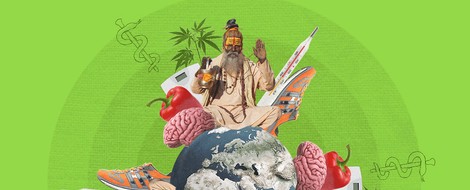Your podcast discovery platform
Curious minds select the most fascinating podcasts from around the world. Discover hand-piqd audio recommendations on your favorite topics.

piqer for: Climate and Environment Globalization and politics Health and Sanity
Mona Silavi is a human and women’s rights activist from the Ahwaz region in Iran. She obtained her bachelor in psychology and specialized in children and adolescence psychology at Damascus University, faculty of psychology and education. She holds a master degree in good governance and human rights in MENA region from Ca’ Foscari University in Venice. She started her activism in Damascus as member of Ahwazi Arab student association. Mona Silavi is a Project Officer at the Unrepresented Nations and Peoples Organization (UNPO) and is the coordinator for topics concerning freedom of religion and belief. She is also a spokesperson of the Al-Ahwaz Democratic Solidarity Party (DSPA). Since 2014 Ms Silavi lives in Belgium as a political refugee
What Is The Soundtrack Of Your Life?
This is an extremely interesting music and science podcast, an unconventional lecture at the science festival in Australia, presented by associate Professor Muireann Irish. Professor Irish is an Australian researcher at the Brain and Mind Centre, at the University of Sydney; her lecture is accompanied by soloist Mary Lou.
Mary Lou plays music while Irish talks about the power and effect of the music on our mind. Music was played through the lecture which makes this podcast very enjoyable.
Professor Irish was motivated by her grandmother’s experience with Alzheimer’s Disease, and she has dedicated her research career to explore the neurocognitive mechanisms underlying memory loss in dementia, with a view to uncovering how we can intervene effectively to improve wellbeing and life quality of the patients.
According to the researchers, when we hear music, an actual chemical reaction occurs in the brain that triggers the release of dopamine, which in turn improves the quality of our memories and cognitive abilities.
According to Darwin, music does not have any adaptive purposes, but is that true? Music in the past was a collective practice, in order to listen to music or produce it, people had to be together and build interpersonal relationships.
Muireann says that music seems to be a universal way of communicating: it can break across languages, cultural differences, and age.
This podcast from Australia gives scientific as well as personal information and makes you wonder what would be the soundtrack of your life.
Stay up to date – with a newsletter from your channel on Health and Sanity.
